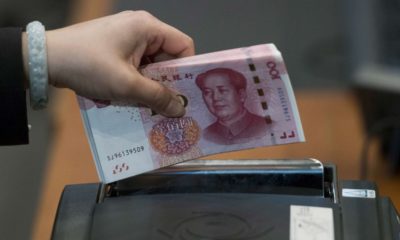The International Monetary Fund (IMF) has warned that one-third of the world economy will plunge into recession in 2023.
The managing director, Kristalina Georgieva started on Monday during the CBS news programme Face the Nation.
She said 2023 will be “tougher” than 2022 as the European Union (EU), United States and China will experience a significant slowdown in their economic development.
She highlighted that the economic slowdown comes as a result of the war between Ukraine and Russia, skyrocketing prices, higher interest rates and also the continual spread of Covid-19 in China will affect the growth of the global economy.
Investors King gathered that in October of 2023, the IMF will cut its global economic growth outlook for the year.
In her words, the IMF managing director said “We expect one third of the world economy to be in recession,”
She further explained that “Even countries that are not in recession, it would feel like a recession for hundreds of millions of people,” she said.
Even though China, Asia’s largest economy, has scrapped its zero-Covid policy and has moved to reopen its economy, coronavirus virus continues to plague the Asia giant
Georgieva however reiterated that China, the world’s second-largest economy, is on the verge of facing a major economic crisis at the start of the new year.
“For the next couple of months, it would be tough for China, and the impact on Chinese growth would be negative, the impact on the region will be negative, the impact on global growth will be negative,” she said.
One of the major roles of the International Monetary Fund (IMF) is to issue early warnings about possible economic shocks and other factors that could affect economic growth.
The organization, which has 190 countries as members, works closely together to ensure the stability of the world’s economy.
This recent revelation by the IMF managing director will be a major blow to the world with the exception of the Asian countries that witnessed an excruciating recession last year.
The official purchasing managers’ index (PMI) for December revealed that China’s factory activity shrank in Q3 in a row and also the fastest rate in almost three years as coronavirus infections waves continue to hinder growth
December also recorded a decline in the price of houses across 100 chinese cities which was down for six months consecutively.
This survey was conducted by China Index Academy, which is one of the country’s largest independent property research firms.
China’s President, Xi Jinping, on Saturday, in his first public address since the change in policy, called for more effort and unity as China enters what he called a “new phase”.
The downturn in the United States also affected the demand for China’s products and other Asian commodities which includes products from Thailand and Vietnam.
The lack of growth can trigger investors to pull money out of an economy and so countries, especially poorer ones, have less cash to pay for crucial imports like food and energy.

 Billionaire Watch2 weeks ago
Billionaire Watch2 weeks ago
 Startups4 weeks ago
Startups4 weeks ago
 News4 weeks ago
News4 weeks ago
 News4 weeks ago
News4 weeks ago
 Bitcoin4 weeks ago
Bitcoin4 weeks ago
 Naira4 weeks ago
Naira4 weeks ago
 Forex3 weeks ago
Forex3 weeks ago
 Treasury Bills4 weeks ago
Treasury Bills4 weeks ago

























